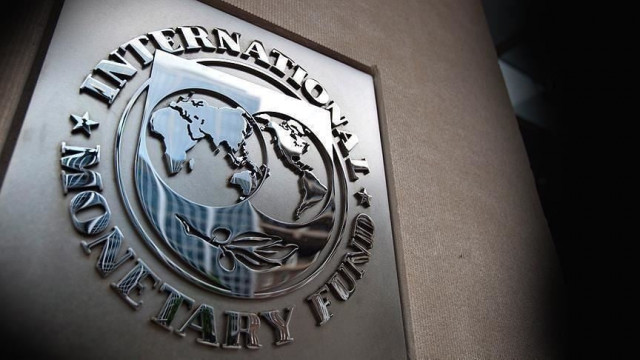Power tariff, mini-budget sticking points in talks with IMF
Two sides extend review programme discussions for one more day

PHOTO: ANADOLU AGENCY/FILE
Talks between Pakistan and IMF had started on February 3 and were planned to end on February 13 (Thursday). But neither the finance ministry nor the IMF issued a handout as the Pakistani authorities continued their internal discussions till late in the evening.
Talks would continue on Friday, said a senior government official.
“There is no planned interaction with the media until the discussions are finalised,” said Teresa Dabán Sanchez, the Resident Representative of the IMF in a terse response to The Express Tribune.
She was requested to comment whether the talks were extended beyond scheduled time of February 13 and when the talks were expected to conclude.
Unlike the feel good factor that the Pakistani authorities tried to create on Wednesday through the media, both the sides remained poles apart till Thursday evening due to differences over the thorny issues of increase in electricity prices and additional tax measures that are needed to bridge the projected shortfall.
Successful culmination of talks would pave the way for the release of the third loan tranche amounting to $450 million and will also ensure continued inflows from multilateral lenders.
The PTI government that was already under public pressure due to skyrocketing inflation was reluctant to increase electricity tariffs and impose Rs200 billion additional taxes.
In his first detailed speech on the floor of the National Assembly, Adviser to the Prime Minister on Finance Dr Abdul Hafeez Shaikh warned on Wednesday that the PTI government was likely to fail, if it did not take corrective economic decisions.
The IMF did not fully accept Pakistan’s position on cutting expenditures and relax quarterly ceilings on the central bank’s profits to compensate the shortfall, according to Pakistani authorities.
The IMF did not accept the proposal to cut the PSDP spending and savings from some of the welfare programmes.
The top economic team was also of the opinion that there was a need to take sustainable revenue measures instead of relying on one-off measures.
The IMF did not budge from its demand of additional revenue measures to take the overall FBR’s collection close to Rs5 trillion, the sources said.
They added that another concern of the IMF was that steep shortfall in the FBR’s collection would undermine the provincial cash surpluses, which in turn could lead to missing the annual primary deficit target.
Punjab’s Finance Secretary Abdullah Khan said that generating cash surpluses was linked with the FBR’s ability to achieve its annual target. The IMF has estimated Rs348 billion cash surplus for the current fiscal year.
The sources said the IMF also did not accept the government’s plan to freeze electricity tariffs for the next at least one to one-and-half-year.
They said that the government was of the opinion that some of the one-off electricity tariff-related measures that had been taken in the past would end in next eight months.
Until the one-off electricity adjustments measures end, the government is reluctant to further increase the prices.
The IMF also had serious issues with the circular debt reduction management plan, prepared by the Ministry of Energy. The plan is heavily tilted towards increasing electricity prices to recover the cost instead of reducing the cost of generation.
According to media reports, the debt swelled to Rs1.9 trillion – over 66% or Rs800 billion added by the PTI government in the past one-and-half years.
The sources said the IMF had also issues with repayment of the Chinese loans. As per the understanding at the start of the programme, all the Chinese loans were required to be rolled over by Pakistan.
However, in September last year Pakistan returned a Chinese commercial loan of $700 million to the China Development Bank. But the CDB relend the loan to Pakistan in December last year again.
A major Chinese repayment was also due in the last quarter and the IMF has asked Pakistan to make sure to get it rollover before the end of the current fiscal year.



















COMMENTS
Comments are moderated and generally will be posted if they are on-topic and not abusive.
For more information, please see our Comments FAQ